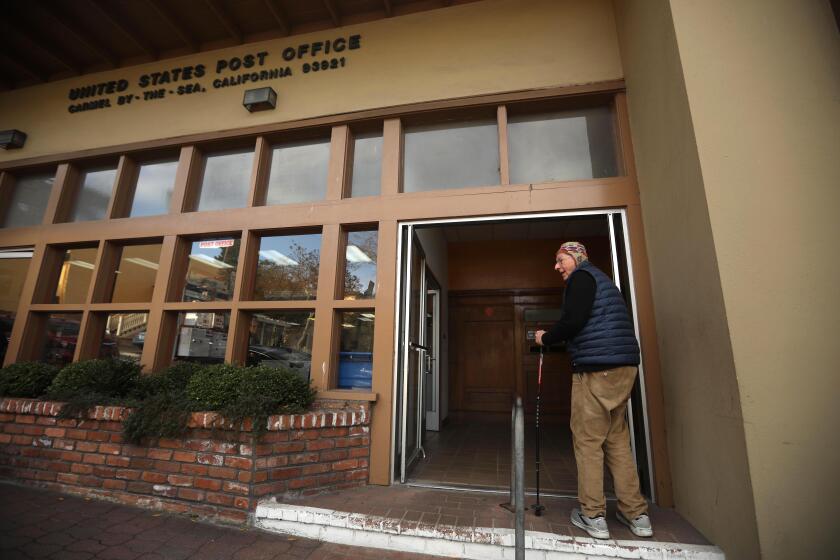Fix Sales Tax Funding
Church and state came together in a productive and constitutional fashion last week when Cypress finally ended a bitter legal dispute with a fast-growing congregation that wants to build a church in town.
The out-of-court settlement is welcome news. But sadly, it does nothing to address the real problem: intense and growing pressure on local governments to embrace questionable real estate deals that promise to generate badly needed sales tax revenue.
The deal in Cypress gives both sides what they want. The city gets its hands on prime property on the corner of Katella Avenue and Walker Street that it can use to woo Costco or another big retailer. Cottonwood Christian Center can build a badly needed campus for its 4,500-member congregation on a nearby golf course.
The deal was the best possible outcome to an ugly situation that drew national attention after Cottonwood lodged a religious discrimination lawsuit against Cypress.
Cypress had tried to use its power of eminent domain to seize the corner lot, which sits in a redevelopment zone. But the church clearly had the right to develop the land it bought in 1999 for $13 million. Cypress council members agreed to pay $18.8 million for the lot -- money the church will use to buy the land now home to a golf course.
This wasn’t, as the church suggested, a case of religious persecution. It was a misguided attempt to use redevelopment agency powers to keep Cottonwood from building a nonprofit complex that would contribute little sales tax revenue. Cypress also erred by agreeing to use its considerable redevelopment powers to benefit Costco, which has money to buy its own properties.
Cypress got religion only after a U.S. District judge blasted the city for abusing its powers in order to make room for a big retailer. The judge suggested that the Constitution’s framers “might be surprised to learn” that Cypress thought it constitutional to use its power of eminent domain to seize the corner lot and turn it over to a retailer.
The Cypress dispute was a costly and painful example of why Sacramento must fix a state funding formula that forces local governments to ignore solid land-use planning and instead chase sales tax revenue needed to balance their budgets.
It happened in Garden Grove, which had threatened to replace a residential neighborhood with tourist traps in a bid to cash in on free-spending visitors to nearby Disneyland. San Juan Capistrano considered selling land to Home Depot to generate more sales tax. And on Feb. 18, disagreement over a controversial proposal to use $1.01 million in city funds to lure a Costco store sparked a marathon 9 1/2-hour City Council meeting in La Habra.
Land-use proposals should be determined on their merits -- is the parcel zoned for retail, can the added traffic be absorbed, is there a better use for the land in question? But three years ago, hundreds of local elected officials polled by the nonprofit Public Policy Institute of California admitted that sales tax revenue was the biggest influence on land development in their respective cities.
The pressure to abandon sensible zoning and construction guidelines will only grow given the state’s huge budget shortfall. That’s one more reason for Sacramento to act quickly to fix the funding mess that led to the church vs. state standoff in Cypress.
More to Read
Inside the business of entertainment
The Wide Shot brings you news, analysis and insights on everything from streaming wars to production — and what it all means for the future.
You may occasionally receive promotional content from the Los Angeles Times.






